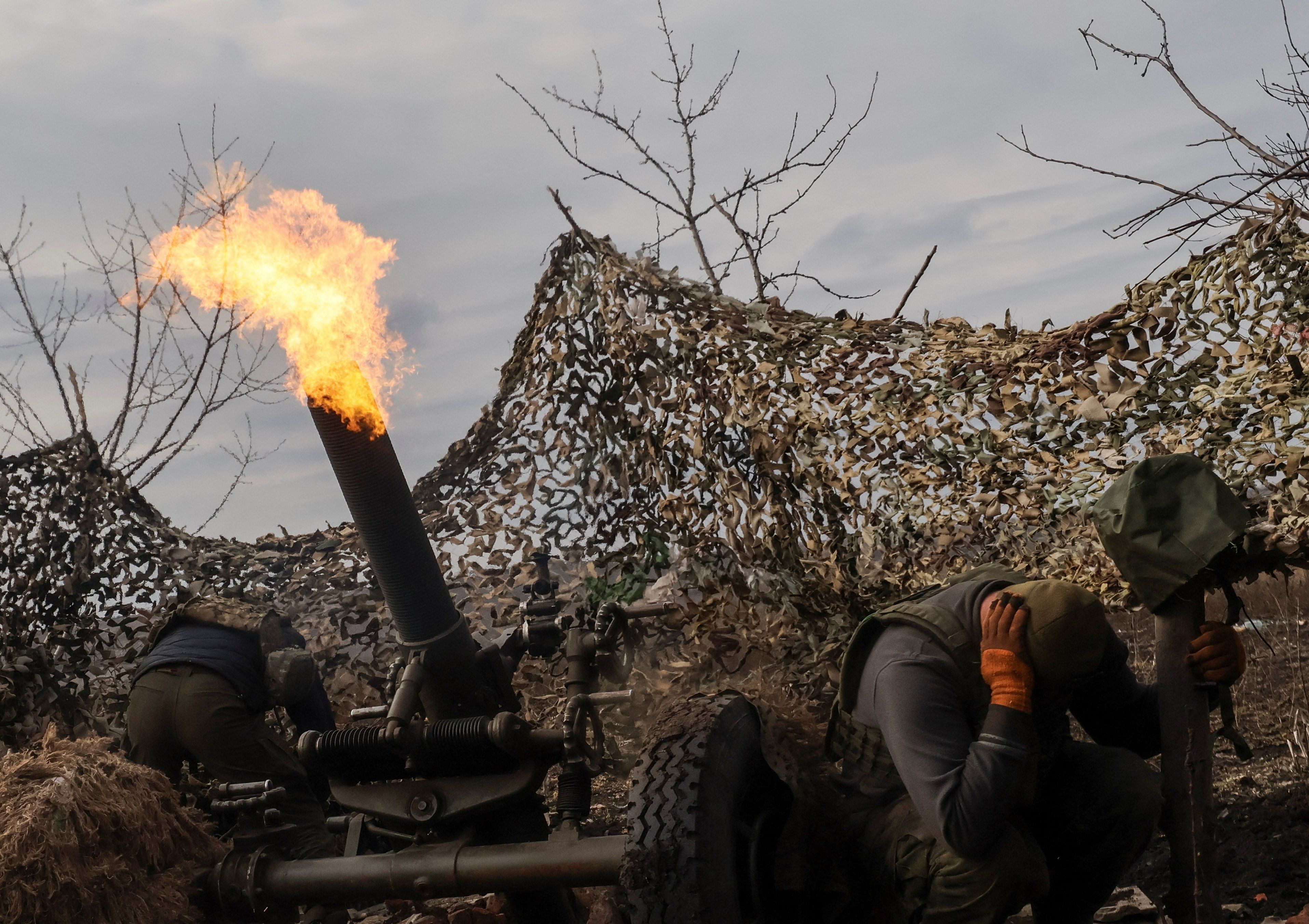What We’re Watching: Battle for Bakhmut, Xi’s diplomatic muscle, AUKUS sub deal
The Bakhmut killing field
Bakhmut, home to about 75,000 people before the war, has become an urban killing field. Western intelligence agencies say up to 30,000 Russians have died or been seriously injured in the fight to take this town. Ukrainian casualties, harder to estimate, are also running high.
Russians appear to be fighting mainly to achieve some victory following months of setbacks followed by stalemate. They also hope the eventual capture of this town can boost their chances of advancing on larger cities in other parts of Donetsk province, though some analysts say they won’t have the manpower or firepower to advance beyond Bakhmut anytime soon. Adding to Russia’s complications, the Washington-based Institute for the Study of War argues that the country’s defense ministry has likely pushed large numbers of Wagner Group mercenaries to the deadliest sites of fighting in Bakhmut to reduce the Kremlin influence of Wagner chief and frequent critic of the Russian military Yevgeny Prigozhin by thinning out his force.
Though badly outnumbered, Ukrainian forces have been slow to surrender Bakhmut because they want to inflict as much damage as possible on Russian forces ahead of an expected Ukrainian counteroffensive in the coming weeks. For now, the killing continues.
Xi’s upcoming Moscow trip
Just weeks after releasing a 12-point peace plan for Ukraine, China’s President Xi Jinping is reportedly set to meet with Vladimir Putin in Moscow as soon as next week. This would be Xi’s second trip outside mainland China since lifting the draconian zero-COVID policy in December.
Xi, a close mate of Putin’s who has benefited from buying up cheap Russian oil and gas since the war broke out, has sought to position himself as a key arbiter between Russia and Ukraine. He is not known to have spoken directly to President Volodymyr Zelensky since Russia’s onslaught began one year ago, but there are reports that Xi and Zelensky could finally connect virtually next week.
Despite maintaining warm relations with Russia and voting against UN measures condemning Moscow’s aggression, Xi isn’t necessarily a fan of the ongoing war, which continues to put pressure on the global economy and fuel inflation, making it harder for poor debtors to repay their loans to Beijing. What’s more, just days after brokering a diplomatic breakthrough between foes Iran and Saudi Arabia, Beijing is likely feeling chuffed at the growing perception of its increasing diplomatic clout … at the US’ expense.
AUKUS phase two
Remember the 2021 AUKUS deal between the US, UK, and Australia? That’s the pact that caused France to temporarily withdraw its ambassadors from Washington and Canberra after the three allies signed a security alliance focused on the Indo-Pacific and ditched plans for Australia to buy French-made submarines.
On Monday, President Joe Biden, UK PM Rishi Sunak, and Australia’s Anthony Albanese met in San Diego and took the agreement to the next level by expanding the arms and tech deal. Australia is now set to buy nuclear-powered submarines from the US, and will co-build a new submarine with the UK as it retires its current fleet over the next decade. This is a huge deal, marking the first time the US will share its nuclear technology for these vessels since it did so with Britain in 1958 as part of a defense pact.
The arming of Australia is yet another signal that Washington is expanding its military presence in the Indo-Pacific and that London is positioning itself on a greater collision course with Beijing going forward. Crucially, because Australia will rely on Washington for tech support in operating the US-made submarines, some have expressed concern that Canberra’s military sovereignty could be at risk.
Indeed, it’s a good time to be in the weapons business: Sunak has announced that the UK will ramp up its defense spending by £5 billion over the next two years to deal with a range of national security threats – code for China and Russia.
An unhappy Beijing hit back Tuesday, accusing the three states of "walking further and further down the path of error and danger."
